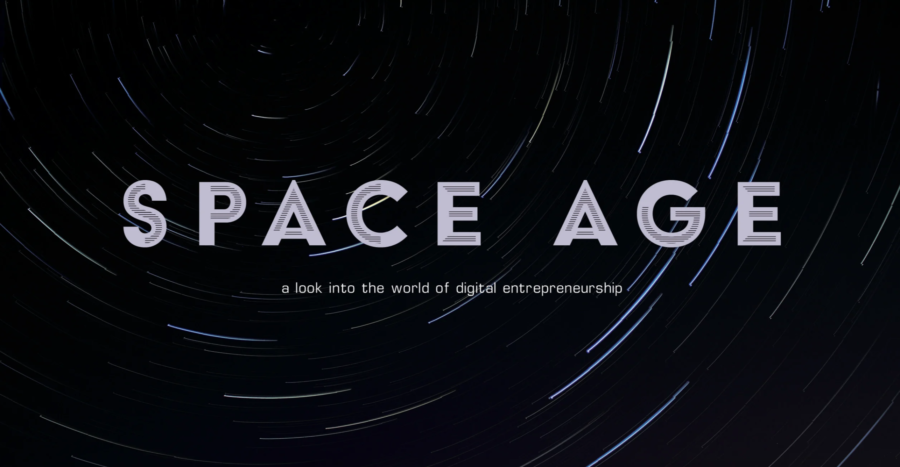It’s 10 a.m. on a Monday, and 30 students sit dolefully in a classroom. It's too early to be lucid and too late to make any excuses about it. Never mind cloudy skies and impending midterms, because when their professor bounds in the door as the alma mater tolls on the chapel bells, the academic day turns upside down.
Walking is not the right term for how Ralph Carter, professor of political science, enters a classroom. He comes in filled with enthusiasm, the spring in his step reflected in his rugged cowboy boots, big belt buckle and neatly trimmed mustache.
He sets a manila folder down on the podium, steals a quick glance at his notes for the day and begins a veritable tour de force of an American foreign policy lecture from memory.
Carter has been a member of the faculty and a favorite of students since his arrival at the university 30 years ago.
Now lauded and ranked among the nation’s best 300 professors by the Princeton Review, Carter's journey to professorship started out as a desire to go to law school.
Born to an Air Force family and raised in Wichita Falls, Texas, Ralph Carter attended his hometown university of Midwestern State and studied in its government program.
Initially set on going to law school, Carter heeded the advice of his father, who pushed him to find a line of work that he would find enjoyable. Far from being daunted, Carter found a love for professorship.
“It’s a good deal,” he explained. “Professors get to stand around and talk about interesting stuff all day.”
The drive to achieve pushed him to the top of his class. He had the potential to set out a path of success and excellence in political science, yet, if he had stayed at Midwestern State, he might still be in Wichita Falls.
He recalled an adviser who urged him to leave his hometown for the prestigious graduate program at Ohio State University by declaring, “if you stay at Midwestern State, you’ll end up being the most popular professor at Sul Ross State [a tiny college in rural West Texas].”
Carter's desire to teach at a Southwest Conference school, such as Rice or TCU, lit a fire inside him and made graduating from a top-ranked doctorate program his best and only choice.
While at Ohio State, the Texas Ph.D. candidate set about networking with the most accomplished scholars in the discipline, interacting with the president of the International Studies Association, learning from the likes of future Lockheed Martin executives and working at Yale University’s conference center, where he met prominent American ambassadors.
Not content with just passive participation in his future, Carter got into a disagreement with the director of placement at Ohio State.
Carter stubbornly protested when he found out his name was unknowingly submitted for a professor job. “I told him, ‘you can’t define my interests,” he recalled.
TCU turned out to be the next important step in the road. With his grandparents as longtime residents, Carter emphasized the “tremendous appeal to Fort Worth.”
The university hired him for a temporary position which eventually transformed into a tenure-track position. Carter was offered quality instruction and a nurturing professional environment full of instructors who shared a similar passion for students.
Thrilled to come to the university from what he called an isolating “publish or perish” environment in which universities judged professors only on the volume of their research, Carter asked, “shouldn’t we be worried about students’ quality of life from here on out?”
The simple question about how a university should work highlights the essence of Carter’s impact as a mentor, teacher and friend. His longtime colleague in the political science department, Jim Riddlesperger, described him as among “the most talented classroom instructors that I know of.”
Fellow political science professor Jim Scott, who has worked and written with Carter for two decades, asserted many professors try to reach what he has done, “but few manage to achieve it.”
With room to grow at the university, Carter continued his relentless efforts to improve. Scott described Carter’s impact as being “widely regarded as a model teacher-scholar whose commitment to engagement with students is exemplary.”
Riddlesperger echoed the praise of Carter, noting “the key is that he prepares for his success.” The accolades and the decades of loyal students came not by accident, but by a determined design to measure his own success by the success of those in his classroom.
What resulted from his labors on the path of academic and scholastic excellence is a what Carter describes as an excitement in front of classes, a feeling that interacting with students is the best part of the day and something to which to look forward.
Even if students without any special love for political science take a course Carter teaches, he strives to have students make more informed decisions in their daily lives, to urge them to reach for success, just as his college adviser encouraged him. In some cases, Carter has become a close friend to students in years after their graduation.
“The Chancellor and Provost have a vision of what they want the university to be,” Carter said. "As administrators, faculty and staff, [we] are all rowing the boat in the same direction.”
By beginning his fourth decade at the university in 2012, the professor from Wichita Falls continues his decorated academic journey. As evidenced by his smile and his mastery of professorial practice, Carter said he enjoys where the road has led him so far.






